Workplace Insights Tips
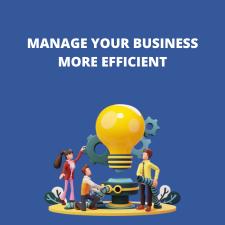
Strategies for Managing Multigenerational Workforces
Managing multigenerational workforces, comprising individuals from different age groups with diverse perspectives, experiences, and work styles, presents unique challenges and opportunities. Employers must implement strategies that foster collaboration, respect, and inclusivity to leverage the strengths of each generation and promote a harmonious work environment. Here are key strategies for effectively managing multigenerational workforces: 1. Foster Mu
Strategies for Managing Multigenerational Workforces
Managing multigenerational workforces, comprising individuals from different age groups with diverse perspectives, experiences, and work styles, presents unique challenges and opportunities. Employers must implement strategies that foster collaboration, respect, and inclusivity to leverage the strengths of each generation and promote a harmonious work environment. Here are key strategies for effectively managing multigenerational workforces: 1. Foster Mu
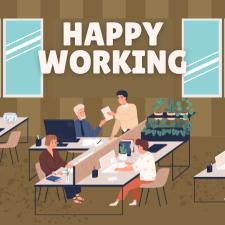
The Impact of Flexible Working Hours on Employee Satisfaction and Productivity
Flexible working hours, allowing employees to determine their own work schedules within certain parameters, have become increasingly popular in modern workplaces. This shift represents a departure from traditional 9-to-5 schedules and offers employees greater autonomy over their work-life balance. The impact of flexible working hours on employee satisfaction and productivity is significant and multifaceted. 1. Enhanced Work-Life Balance Reduced Stress: F
The Impact of Flexible Working Hours on Employee Satisfaction and Productivity
Flexible working hours, allowing employees to determine their own work schedules within certain parameters, have become increasingly popular in modern workplaces. This shift represents a departure from traditional 9-to-5 schedules and offers employees greater autonomy over their work-life balance. The impact of flexible working hours on employee satisfaction and productivity is significant and multifaceted. 1. Enhanced Work-Life Balance Reduced Stress: F
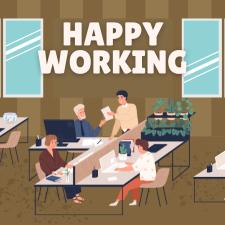
Workplace Collaboration Tools: Maximizing Productivity and Communication
In the modern workplace, collaboration tools are essential for maximizing productivity and facilitating seamless communication, especially as remote and hybrid work models become more prevalent. These tools help teams stay connected, manage projects efficiently, and foster a collaborative culture. Here are key strategies for leveraging workplace collaboration tools to enhance productivity and communication. 1. Selecting the Right Collaboration Tools
Workplace Collaboration Tools: Maximizing Productivity and Communication
In the modern workplace, collaboration tools are essential for maximizing productivity and facilitating seamless communication, especially as remote and hybrid work models become more prevalent. These tools help teams stay connected, manage projects efficiently, and foster a collaborative culture. Here are key strategies for leveraging workplace collaboration tools to enhance productivity and communication. 1. Selecting the Right Collaboration Tools
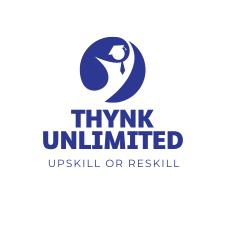
Upskilling and Reskilling: Preparing the Workforce for the Future
As technology rapidly evolves and the nature of work changes, organizations must focus on upskilling and reskilling their workforce to remain competitive and ensure long-term success. Upskilling involves enhancing employees' current skills, while reskilling means teaching them new skills to adapt to changing roles or industries. Here are strategies to effectively prepare the workforce for the future. 1. Assess Current Skills and Future Needs
Upskilling and Reskilling: Preparing the Workforce for the Future
As technology rapidly evolves and the nature of work changes, organizations must focus on upskilling and reskilling their workforce to remain competitive and ensure long-term success. Upskilling involves enhancing employees' current skills, while reskilling means teaching them new skills to adapt to changing roles or industries. Here are strategies to effectively prepare the workforce for the future. 1. Assess Current Skills and Future Needs
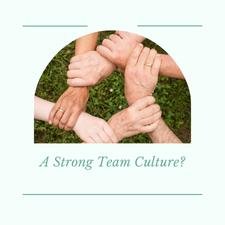
Building a Strong Organizational Culture in Distributed Teams
As remote and hybrid work models become increasingly common, building a strong organizational culture in distributed teams is both challenging and crucial. A strong culture fosters employee engagement, enhances collaboration, and drives organizational success. Here are key strategies to cultivate a robust organizational culture among distributed teams. 1. Define and Communicate Core Values Clearly Articulate Values: Clearly de
Building a Strong Organizational Culture in Distributed Teams
As remote and hybrid work models become increasingly common, building a strong organizational culture in distributed teams is both challenging and crucial. A strong culture fosters employee engagement, enhances collaboration, and drives organizational success. Here are key strategies to cultivate a robust organizational culture among distributed teams. 1. Define and Communicate Core Values Clearly Articulate Values: Clearly de

Effective Leadership in Times of Change and Uncertainty
Leading an organization through times of change and uncertainty requires a unique set of skills and approaches. Effective leadership in such periods involves clear communication, empathy, adaptability, and a focus on both the immediate and long-term impacts of change. Here are strategies that leaders can employ to navigate their organizations through turbulent times. 1. Communicate Clearly and Transparently Open Communication:
Effective Leadership in Times of Change and Uncertainty
Leading an organization through times of change and uncertainty requires a unique set of skills and approaches. Effective leadership in such periods involves clear communication, empathy, adaptability, and a focus on both the immediate and long-term impacts of change. Here are strategies that leaders can employ to navigate their organizations through turbulent times. 1. Communicate Clearly and Transparently Open Communication:
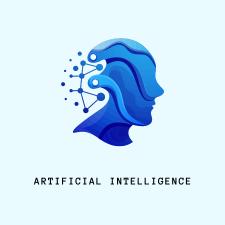
The Role of Artificial Intelligence and Automation in the Modern Workplace
Artificial Intelligence (AI) and automation are revolutionizing the modern workplace, transforming how businesses operate and how employees perform their tasks. These technologies offer numerous benefits, including increased efficiency, reduced costs, and enhanced decision-making capabilities. Here are key roles that AI and automation play in today’s workplace. 1. Enhancing Productivity and Efficiency Automating Routine Tasks: AI and automation can
The Role of Artificial Intelligence and Automation in the Modern Workplace
Artificial Intelligence (AI) and automation are revolutionizing the modern workplace, transforming how businesses operate and how employees perform their tasks. These technologies offer numerous benefits, including increased efficiency, reduced costs, and enhanced decision-making capabilities. Here are key roles that AI and automation play in today’s workplace. 1. Enhancing Productivity and Efficiency Automating Routine Tasks: AI and automation can

Navigating Workplace Stress: Mental Health and Well-being Initiatives
Workplace stress is a prevalent issue that can significantly impact employees' mental health and overall productivity. To address this, organizations must implement comprehensive mental health and well-being initiatives. Here are key strategies to help navigate workplace stress and promote a healthy work environment. 1. Foster a Supportive Culture Open Communication: Encourage a culture of open communication where employee
Navigating Workplace Stress: Mental Health and Well-being Initiatives
Workplace stress is a prevalent issue that can significantly impact employees' mental health and overall productivity. To address this, organizations must implement comprehensive mental health and well-being initiatives. Here are key strategies to help navigate workplace stress and promote a healthy work environment. 1. Foster a Supportive Culture Open Communication: Encourage a culture of open communication where employee

Diversity, Equity, and Inclusion: Strategies for Building an Inclusive Workplace
Creating a diverse, equitable, and inclusive (DEI) workplace is essential for fostering innovation, improving employee satisfaction, and enhancing organizational performance. Here are key strategies to build an inclusive workplace that promotes diversity, equity, and inclusion. 1. Establish Clear DEI Goals and Policies Define Objectives: Clearly outline the goals and objectives for diversity, equity, and inclusion within the o
Diversity, Equity, and Inclusion: Strategies for Building an Inclusive Workplace
Creating a diverse, equitable, and inclusive (DEI) workplace is essential for fostering innovation, improving employee satisfaction, and enhancing organizational performance. Here are key strategies to build an inclusive workplace that promotes diversity, equity, and inclusion. 1. Establish Clear DEI Goals and Policies Define Objectives: Clearly outline the goals and objectives for diversity, equity, and inclusion within the o
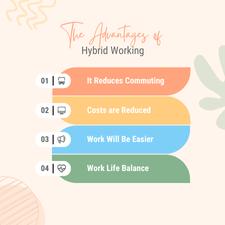
Enhancing Employee Engagement and Retention in a Hybrid Work Environment
As organizations navigate the shift to hybrid work models, maintaining high levels of employee engagement and retention becomes crucial. A hybrid work environment, which combines remote and in-office work, offers flexibility but also presents unique challenges. Here are strategies to enhance employee engagement and retention in such settings. 1. Clear Communication and Collaboration Tools Effective communication is vital for eng
Enhancing Employee Engagement and Retention in a Hybrid Work Environment
As organizations navigate the shift to hybrid work models, maintaining high levels of employee engagement and retention becomes crucial. A hybrid work environment, which combines remote and in-office work, offers flexibility but also presents unique challenges. Here are strategies to enhance employee engagement and retention in such settings. 1. Clear Communication and Collaboration Tools Effective communication is vital for eng

The Future of Remote Work: Trends and Best Practices
The COVID-19 pandemic accelerated the adoption of remote work, transforming it from a niche arrangement to a mainstream practice. As organizations and employees have adapted, several key trends and best practices have emerged that are shaping the future of remote work. Trends in Remote Work Hybrid Work Models: Many companies are adopting hybrid models, blending remote and in-office work. This appro
The Future of Remote Work: Trends and Best Practices
The COVID-19 pandemic accelerated the adoption of remote work, transforming it from a niche arrangement to a mainstream practice. As organizations and employees have adapted, several key trends and best practices have emerged that are shaping the future of remote work. Trends in Remote Work Hybrid Work Models: Many companies are adopting hybrid models, blending remote and in-office work. This appro
































